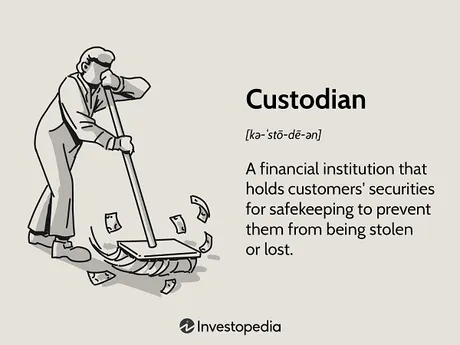
Such cringe, amirite?
Nobody in crypto wants to admit this, least of all me, but math is math. In order for crypto to increase adoption levels to align with its own exponential growth: it is essentially impossible for the reality of this situation to turn out any other way. Custodians will happen. It is known. This is not something we should fight; but rather something we should expect while planning to build around.
In fact this is already a practically celebrated fact right here on Hive. What is the biggest hurdle to Hive adoption? Is it scaling or on-chain fees? Is it marketing? Is it development? Most would agree the hardest thing to do is to simply onboard new users and actually retain them over time.
There's simply too great of an overhead cost for the UX when it comes to creating a new account for the first time. Those of us who have been around the block a few times tend to forget this fact until we actually try to personally onboard someone new.
First, one must find a frontend/user willing to make the account for free. I've personally made dozens of accounts for random people, usually they in turn give that account to a friend. Sure, it's possible to create an account with 3 Hive, but that's even more complicated because getting 3 Hive on Hive without having a Hive account is definitively a non-trivial task.
Then one must explain 4 different types of keys: posting, active, owner, memo. It took me years to even realize that the master key isn't even on chain and is only useful to a particular off-chain algorithm. Then one must explain how to actually use those keys across a dozen completely disconnected frontends. RCs, Upvotes, downvotes, etiquette, content, audience, attention, and expectations. On and on it goes. It can take hours to onboard a new user personally. Now imagine what the experience is like when nobody is actually around to help. Not good! Ragequits are common.
By incorporating custodial accounts that can be accessed by email/password, Facebook/Google/Twitter logins, or even MetaMask: this entire process can be greatly simplified in the short term. It's especially convenient and low risk on Hive because new accounts are worth little to nothing, and thus little to nothing is being risked through centralized onboarding. The same cannot be so easily said for onboarding a Bitcoiner onto a centralized exchange.
Michael Saylor
Here's a guy who understands the situation all too well. Can we trust everything he says? Of course not! He's literally a manic know-it-all who's on record as being anti-Bitcoin. In fact it wasn't even that long ago. Saylor had absolutely nothing nice to say about BTC until 2020. He hasn't even been in the game for a full 4-year cycle! Crazy to think about.
Not exactly sane but has conviction
Saylor is not just a maximalist, but also a corporate maximalist, which is a somewhat rare breed in the moment, yet something gives me the feeling that his ranks will be bolstered soon enough. It's not a surprise that he would expect the corporate world to move in on crypto, I mean excuse me Bitcoin.
As much as I hate to say it, Saylor is right. Bitcoin is for everyone, and it would be foolish to assume we could (or even should) try to stop the banks from utilizing a permissionless network. Thus, the banks will certainly adopt it, and what is a bank if nothing but a custodian for someone else's value?
The real question is: what comes next?
And the answer is pretty obvious. Custodians will continue to be extremely greedy and untrustworthy. The bear markets will continue to expose the liars and cheats, forcing them out of business. Every cycle that goes by more and more people will learn how to hold their own keys and take the power away from the custodians.
Elizabeth Warren
Of course certain willfully ignorant politicians are actively trying to make "non-custodial" wallets illegal, even going to far as to imply that holding your own keys is some kind of extra thing that was added to crypto after the fact. Is it possible something like this actually happens? I mean sure I guess it's possible, although it's difficult to see how we go from here to there in a straight line.
Even if it does happen in some countries it certainly can't happen everywhere. This is a very significant point that many tend to ignore. It's especially relevant to blacklists. How could Bitcoin possibly be blacklisted if money is constantly flying everywhere on DEXes and within countries that refute the blacklist?
The funny thing about this situation is that a custodial wallet is a non-custodial wallet to the entity that owns it. What happens if ten different people share a wallet with multi-sig? Is that a custodial or non-custodial wallet? At the end of the day politicians don't care; they just want as much control as they can possibly wrangle for them and theirs. Let them ignorantly dance about spouting off nonsense. I'm curious to see how that all plays out.
Conclusion
What's a better scenario? Custodians never existed and crypto moves forward at a snail's pace? Or custodians exist, usher in a billion crypto users, and we continue exponential adoption? Whatever we answer, it doesn't matter. There is only one option. There is no choice. The volatility and strife within the ecosystem will continue indefinitely until one side is brought to heel.
Return from Crypto Custodianship is a Necessary Step to edicted's Web3 Blog
